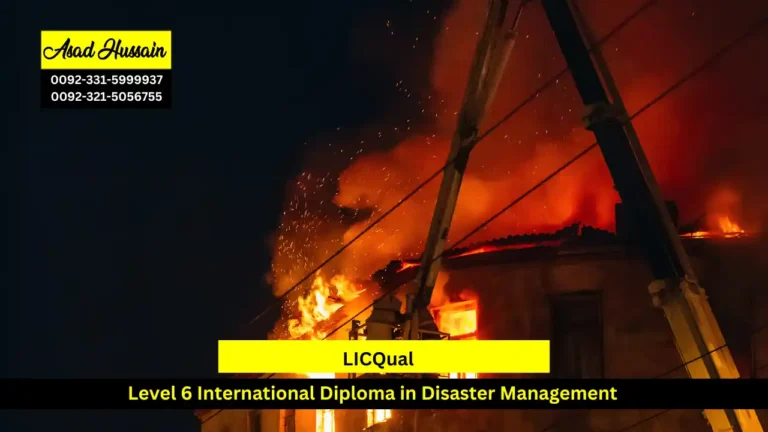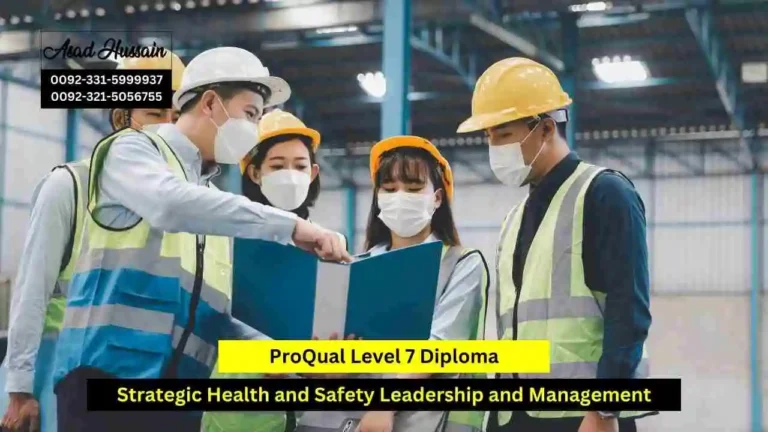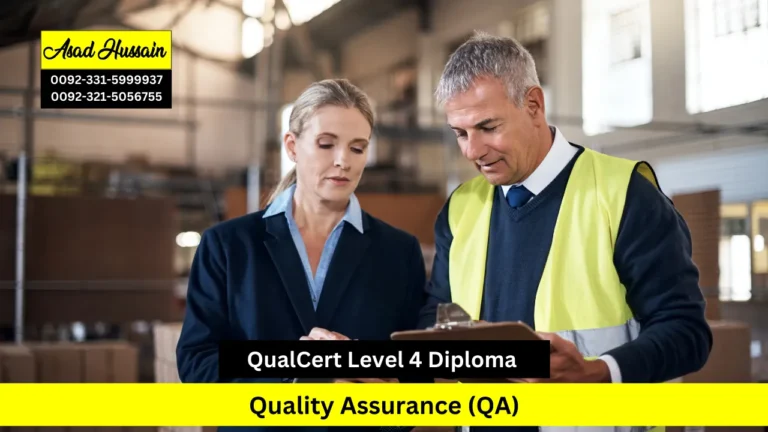The ProQual Level 7 Diploma in Environmental Management represents the pinnacle of professional certification in this critical field. Achieving this diploma formally recognises an individual’s expert capability to design and lead transformative environmental strategies, ensuring regulatory excellence and promoting sustainable innovation. It is the definitive credential for strategic leaders committed to shaping a responsible environmental future for their organisations and the wider community.
This advanced postgraduate-level qualification is designed for senior professionals tasked with developing, implementing, and overseeing strategic environmental policy and sustainable practice within organisations. It provides a comprehensive framework for mastering the complexities of global environmental challenges, regulatory landscapes, and corporate sustainability. The diploma focuses on equipping leaders with the expertise to drive meaningful ecological stewardship while balancing organisational objectives and compliance.
Learners will explore sophisticated topics including strategic environmental impact assessment, circular economy principles, advanced resource management, climate change mitigation and adaptation strategies, and leadership in corporate social responsibility. The curriculum emphasises strategic decision-making, data-driven analysis, and the development of integrated management systems that embed sustainability at the core of organisational strategy and operations, preparing graduates to influence at the highest level.
Program Highlights
Study Units
- Environmental Policy and Governance
- Environmental Impact Assessment
- Sustainable Development
- Environmental Risk Management
- Climate Change and Energy Management
- Environmental Management Systems (EMS)
- Sustainable Resource and Waste Management
- Environmental Economics
- Environmental Auditing and Reporting
- Research Methods in Environmental Management
Entry Requirements
Admission to the ProQual Level 7 Diploma in Environmental Management requires candidates to demonstrate significant prior professional and academic standing, reflecting the strategic level of this qualification.
- Age & Status: Applicants must typically be at least 25 years of age and hold a position of relevant professional responsibility, such as a manager, consultant, or senior officer with influence over environmental strategy.
- Educational Background: While a specific bachelor’s degree is not mandatory, candidates are expected to possess substantial prior learning. This is often evidenced by holding a Level 5 or Level 6 qualification in a related field, such as an Environmental Science diploma, an NEBOSH Environmental Certificate, or a relevant NVQ in Sustainability.
- Language Proficiency: An exceptional standard of written and spoken English is essential to comprehend complex legislative and scientific documents, produce high-level strategic reports, and engage in critical analysis and debate.
- Work Experience: Significant and verifiable professional experience in an environmental, sustainability, or related management role is the fundamental prerequisite. Applicants must be in a position to apply strategic concepts directly to their current work for evidence generation.
All applications will be reviewed on an individual basis, with the course team conducting an assessment of each candidate’s prior experience and qualifications to ensure they are prepared for the demands of this senior-level programme.
Learning Outcomes
Upon completing the ProQual Level 7 Diploma in Environmental Management, students will be able to:
1. Environmental Policy and Governance
- Understand the key components of environmental policies and governance structures.
- Analyse the role of government, businesses, and other stakeholders in shaping environmental policies.
- Evaluate the effectiveness of existing environmental policies in addressing sustainability challenges.
- Develop strategies to influence policy-making processes related to environmental management.
2. Environmental Impact Assessment
- Learn the methods for conducting environmental impact assessments (EIAs).
- Understand the legal requirements and frameworks surrounding EIAs.
- Identify and assess the potential environmental impacts of projects and developments.
- Develop recommendations to mitigate negative environmental effects from proposed projects.
3. Sustainable Development
- Understand the principles of sustainable development and its global importance.
- Examine the relationship between economic growth, environmental protection, and social equity.
- Develop strategies for integrating sustainable practices into business and organisational operations.
- Evaluate sustainability indicators and assess progress toward sustainability goals.
4. Environmental Risk Management
- Understand the concepts and principles of environmental risk management.
- Assess environmental risks associated with various industries and activities.
- Learn the methods for identifying, evaluating, and mitigating environmental risks.
- Develop risk management plans to minimise adverse environmental impacts.
5. Climate Change and Energy Management
- Understand the science of climate change and its global impact.
- Analyse the relationship between energy use and climate change.
- Learn the strategies for reducing greenhouse gas emissions and promoting renewable energy.
- Develop energy management plans that support sustainability goals and reduce environmental footprints.
6. Environmental Management Systems (EMS)
- Learn the framework and principles of environmental management systems (EMS).
- Understand the requirements of international EMS standards, such as ISO 14001.
- Develop and implement EMS to improve environmental performance within organisations.
- Evaluate the effectiveness of EMS and identify areas for continuous improvement.
7. Sustainable Resource and Waste Management
- Understand the principles of sustainable resource use and waste minimisation.
- Learn techniques for managing and reducing waste across different sectors.
- Develop resource efficiency strategies and waste management plans.
- Evaluate the environmental and economic benefits of sustainable resource and waste management practices.
8. Environmental Economics
- Understand the relationship between economics and environmental sustainability.
- Analyse the economic tools and policies used to address environmental challenges.
- Develop strategies for integrating economic and environmental objectives in decision-making.
- Evaluate the costs and benefits of environmental protection measures from an economic perspective.
9. Environmental Auditing and Reporting
- Learn the principles and methods of environmental auditing.
- Understand the role of environmental audits in assessing compliance with regulations and policies.
- Develop skills to report on environmental performance and identify areas for improvement.
- Analyse audit results to support decision-making and drive organisational change.
10. Research Methods in Environmental Management
- Understand the research methods used in environmental management studies.
- Learn how to design and conduct research to address environmental issues.
- Analyse and interpret data collected through environmental research projects.
- Develop skills to present research findings in a clear and concise manner for stakeholders.
Target Audience
This strategic, postgraduate-level diploma is designed for senior leaders, managers, and consultants responsible for shaping and delivering environmental policy, sustainability strategy, and corporate governance within their organisations. It is intended for professionals who need to navigate complex regulatory landscapes, drive meaningful ecological change, and integrate sustainable practices at the highest decision-making levels. Specifically, this diploma is for:
- Environmental Managers and Sustainability Directors seeking formal certification of their strategic expertise.
- Senior Consultants in environmental impact assessment, carbon management, and corporate social responsibility (CSR).
- Operations Directors and Facilities Managers in sectors like manufacturing, construction, or energy with significant environmental responsibilities.
- Policy Advisors and Regulatory Affairs Managers in government agencies or non-governmental organisations (NGOs).
- Business Owners and Corporate Strategists committed to leading their organisations towards net-zero and circular economy objectives.
In essence, this diploma certifies the expert-level competency of professionals who are tasked with transforming environmental challenges into strategic opportunities, ensuring legal compliance, and securing a sustainable future for their organisations and the broader community.







